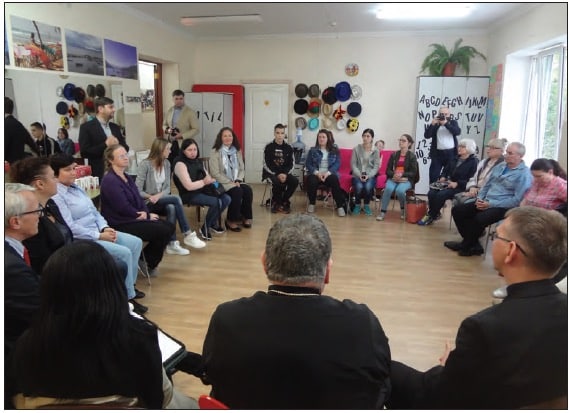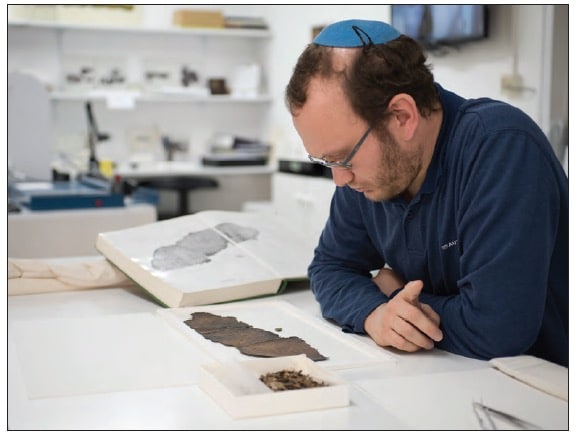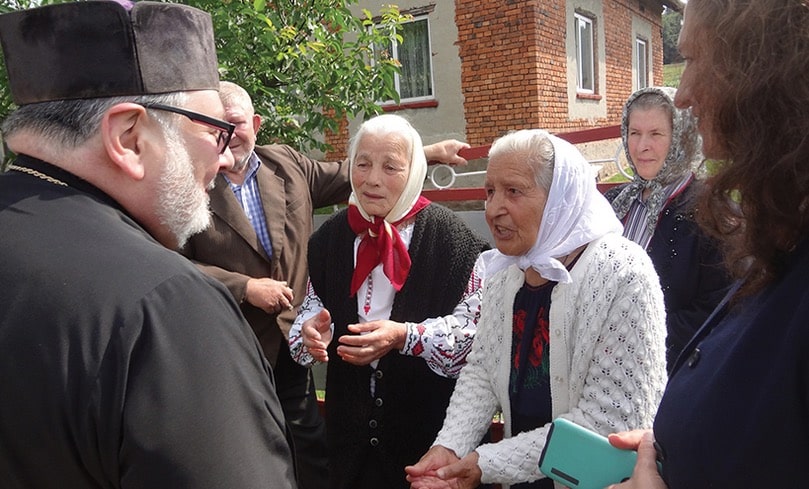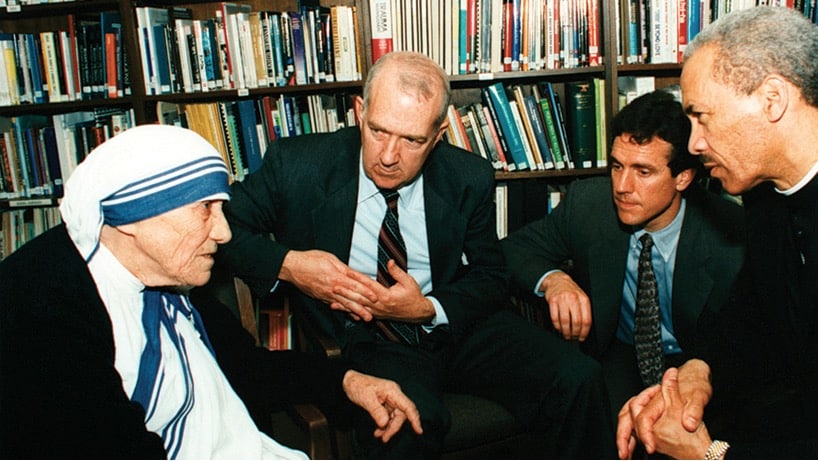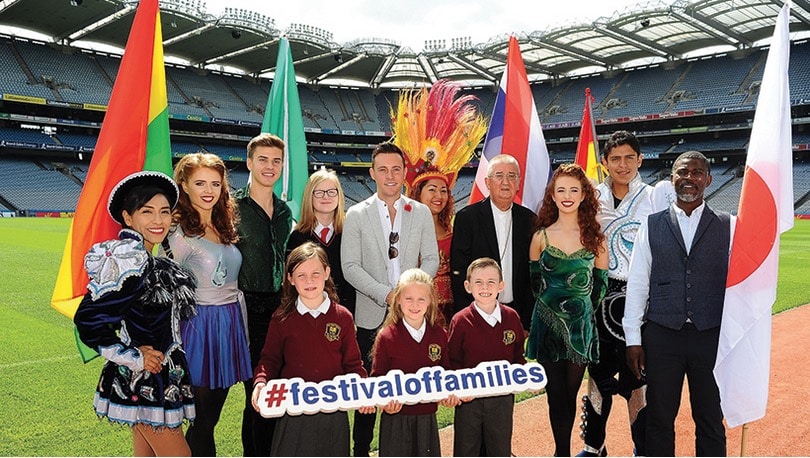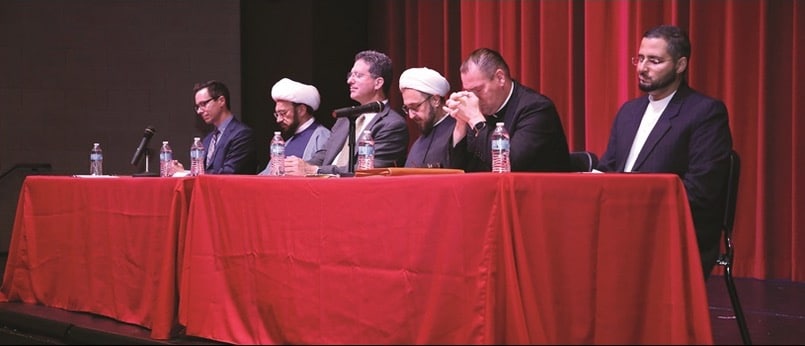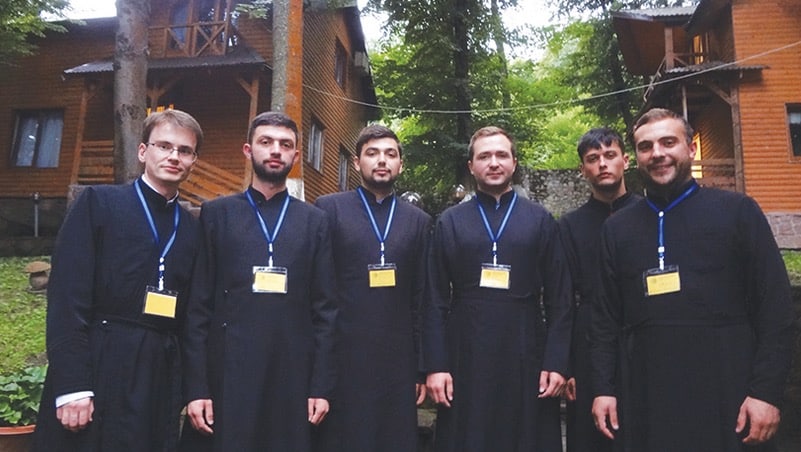The peaceful day-to-day life found in the city centers and smaller villages alike in much of Ukraine belies an awareness that gnaws at the country’s 45 million inhabitants: the war that has been waged in the eastern and southern regions of their country since 2014, when Russia began a military incursion that resulted in the annexation of Crimea and has since killed some 10,000 people.
Despite the length of this conflict and the numbers of lives affected, the war in Ukraine is not receiving a great deal of attention in western media. Archbishop Sviatoslav Shevchuk of Kiev-Halych, who has led the Ukrainian Greek Catholic Church as major archbishop since 2011, told Our Sunday Visitor in late June that the present is a “painful moment of our history, when aggression against Ukraine is becoming a forgotten war.”
‘Two visions of the future’
The unrest in Ukraine can be traced back to the 2014 revolution that ousted the country’s president, Viktor Yanukovych, who fled to Russia and has not returned. When Bishop John Michael Botean, who heads the Romanian Greek Catholic Eparchy based in Canton, Ohio, visited Ukraine in late June and early July on behalf of the U.S. bishops’ Subcommittee on Aid to the Church in Central and Eastern Europe, he saw the effects of the war throughout his visit and, geopolitically speaking, said he saw Ukraine as “the fulcrum” of a power struggle.
“And unfortunately, there’s Ukraine again, stuck in the middle, between opposing forces,” he told OSV. “You just want to say, ‘Please leave Ukraine alone.'”
Archbishop Shevchuk characterized the war not as a religious or ethnic conflict, but as an issue of global security, international law and human dignity.
“It’s a conflict between two visions of the future. And not only the future of Ukraine, and not only the future of Europe,” he told OSV. “The international response to that situation will have very important implications for the whole world.” He characterized the choices as between appeasing an aggressor while going back to a totalitarian regime like the Soviet Union — under which the Ukrainian Greek Catholic Church was harshly persecuted — or promoting free societies.
Tending to trauma
Ukrainian Greek Catholics understand very well the implications of the conflict that has embroiled their country, but their response deals in practical realities, such as building up their Church’s military and hospital chaplaincy programs. As chaplaincies were destroyed under the atheist Soviet system, the Church has had to push for this, and the government only recently passed legislation to recognize military chaplaincies.
“We do not have military ranks. We are just staff of the armed services,” said Father Myron Horbovyi, who has served at the military hospital in Lviv for over a year and a half. He said the norms passed by the government have eased up restrictions in access for chaplains. “This really made our work easier.”
The Patriarchal Curia of the Ukrainian Greek Catholic Church — the bureaucratic structure that allows its bishops to work in collaboration — has commissions on military chaplaincy, healthcare, migration, peace and justice, and other issues, but the systemic pressure of the war prompted the bishops to create the UGCC Crisis Coordinating Center, which combines the Church’s various capacities in a strategic way.
Father Volodymyr Pihichyn, assistant crisis coordinator, described the work of the center, which includes training volunteers who will help soldiers in rehabilitation and even special training for priests in cooperation with Ukrainian Catholic University’s psychology institute.
“Most priests who are educated in normal seminary didn’t have a special course for working … with people after the war,” Father Pihichyn said. And so this special training is being offered in all eparchies (Eastern rite dioceses) to help priests minister to people with posttraumatic stress and more effectively minister to soldiers and their families.
Ministry to families comes in various forms, from counseling for the grieving family members of Ukrainian soldiers killed in the fighting to summer camps for children of soldiers and children who have been displaced from their homes by the conflict. (These projects have received USCCB funding.) The camps have required training leaders to care for traumatized children who, for instance, don’t like it when balloons pop.
Europe in the 21st century
In Ukraine’s capital of Kiev, Caritas Ukraine serves people from Donetsk and Luhansk in the eastern region of the country, where Ukrainians have been driven from their homes by the war. There are 1.5 million such people registered nationwide. One of them is Olha Krotiko, whose 4-year-old daughter had just been released from the hospital for treatment of leukemia when the war began in 2014. The family’s home was near the airport in Luhansk.
“We were right in the middle of all the battles that were going on, and we needed to make a decision,” Krotiko shared. Surrounded by separatist forces, the family appealed to the Ukrainian military for help and were ultimately driven to a field and flown out on a helicopter in use to transport corpses from the battlefield. “Our departure from the region, you could say, was very dramatic.”
Another woman, Alla Krohn, shared the story of having to leave her paralyzed mother in a bathtub with pillows covering her while hiding in her home’s basement for days at a time, while shelling went on all around her house.
A common frustration for the displaced Ukrainians was that the government has no structure in place to provide aid to them, in part because so much attention and resources are currently going to the war effort, which they support as it means defending their country. Ukrainians served by Caritas shared with OSV that local corruption helped foster the conflict, with separatists using bribery to get municipal officials to abandon their cities.
| U.S. Support for Ukraine |
|---|
|
Numerous projects of the Catholic Church in Ukraine receive support from U.S. Catholics, thanks to the U.S. bishops Subcommittee on Aid to the Church in Central and Eastern Europe. The National Collection for Central and Eastern Europe is taken up in most U.S. dioceses on Ash Wednesday. In its last grant cycle, in June, the collection disbursed $4.9 million in funding for 209 projects in 22 countries in Central and Eastern Europe.
|
Andrij Waskowycz, president of Caritas Ukraine, said that displaced Ukrainians often left behind lives where they had money and other resources, but, “Now they have to make impossible choices, whether they buy food or whether they buy medicine, whether they pay rent or pay for the school of their children. We have cases, especially near the battle zone, where people take their children out of school because they can’t afford to send them to school anymore. This is Europe in the 21st century. We have a war in Europe, and the world is not looking. They do not see this war.”

